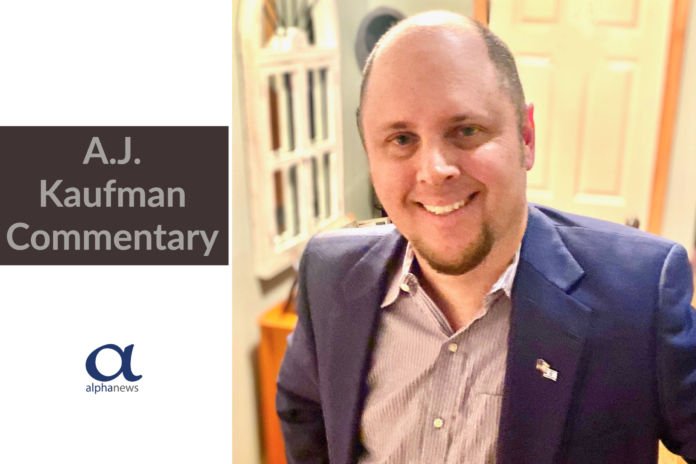The days leading up to our nation’s birthday will find patriotic Americans shopping for outdoor gear at Cabelas; riding pontoons in lakes and river valleys; eating copious grilled meat; watching Duck Dynasty and Fox Nation; and flying the red, white and blue in front of their $175,000 home on a few acres.
Another group will sit in cramped $3,000/month studio apartments in Williamsburg and the Mission District; shop for Black Lives Matter paraphernalia; order vegan fare from DoorDash; await the next ghastly Michelle Goldberg column to drop; and search Netflix for “films with complex, strong women leads.”
If these lines confuse you, you’re my target audience.
Almost half of black students in Milwaukee, where Democrats are holding their convention next month, don’t finish high school in four years. And yet the DNC undoubtedly won’t mention this important matter; instead they’ll salivate over BLM misinformation on police shootings that eschew hard data. (Police use of force has declined for decades.)
The predominantly white and affluent New York Times, Washington Post and Vox readers are deeply concerned with Harvard admission rates but not high school dropout rates. A would-be Harvard person who ends up at Carleton College or UCLA will be fine. A Los Angeles or Minneapolis high school dropout may not.
As Kevin Williamson intimated last week, any “Revolution” we see isn’t poor against rich nor black against white; it‘s Business Class versus First Class or rich versus richer.
We talk about race ad nauseam and the “national conversation” goes nowhere; that’s because issues are more about socio-economics or class. People identify strongly with those who lead similar lives, regardless of race, making class a more distinct line in American life.
A national press corps out of touch with reality that believes false narratives hinders matters. Four years after the stunning Trump election, they still don’t know much about what the country looks like or how people think.
Consider the Ford F-150 , our country’s favorite vehicle for decades; how many denizens of Boston, New York City or West Hollywood have one? Being progressive could mean leaving the urban bubble by bike, bus or Prius to visit a Bass Pro Shops or Dollar General. Because they won’t, the consequences of such disconnect means very few rural Americans can relate to coastal elites.
The average U.S. family makes $55,000 per year and probably has a 2008 sedan with 150,000 miles and a late model Chevy Equinox in the garage. They drive more on county roads than interstates, haven’t ridden an overcrowded subway, and disapprove of racial riots tearing down innocuous statues of heroes and corporate virtue signaling. Judging past actions by contemporary moral standards remains intellectually lazy.
Ordinary folks surely aren’t concerned with deceased baseball owners who made insensitive remarks in a small town in 1978; college fight songs coined by black athletes a quarter-century ago; or celebrities donning blackface at cocktail parties. These aren’t acts of violence. Attacking symbolism is feckless and easy. Fixing real issues takes work.
Today’s Etiquette Police remind me of East Germans “informing” on neighbors decades ago. But they had the excuse of being under the boot-heel of communist dictatorship; what’s the excuse for Caitlyn in Denver or Bryce in Portland? “Caitlyn and Bryce“ are imitating Woodstock, Cindy Sheehan and Occupy Wall Street. These are bored children of our ruling class: faux radicals playing games — with pent up energy after the pandemic quarantine — until they return to graduate school.
The folks I encounter around Amarillo, Bismarck and Chattanooga don’t have much in common with counterculture wannabes or Tom Friedman. They also don’t worry about Wall Street salaries like resentful journalists and professors do.
Pundits and academics say they’re “deeply concerned” about inequality; however, they don’t understand reality. Professors taking six-figure salaries plus benefits hate that an “undereducated” car dealership owner earns seven figures. To think a $140,000 annual income is “poor” by any measure is inexplicable, but the mindset occurs because they mostly know investment bankers and lawyers who make three or four times that. How can you properly do your job and engage with the country when you’re so insular?
No one can fix endemic corruption in Atlanta, Philadelphia or other Democrat-controlled locales. The tragedy of American cities occurs when promoting charter schools or decrying fatherless homes and gang violence (of more than 500 homicides last year in Chicago, only three were by police) are deemed “right-wing talking points.”
Meanwhile, Jacob Frey remains Minneapolis mayor; Jay Inslee oversees Washington State; muttonheads like LeBron James are celebrated; and thus, the dropout rate in the Detroit, Houston, Seattle or the Kentucky Appalachians won’t change.
A.J. Kaufman
A.J. Kaufman is an Alpha News columnist. His work has appeared in the Baltimore Sun, Florida Sun-Sentinel, Indianapolis Star, Israel National News, Orange County Register, St. Cloud Times, Star-Tribune, and across AIM Media Midwest and the Internet. Kaufman previously worked as a school teacher and military historian.

















